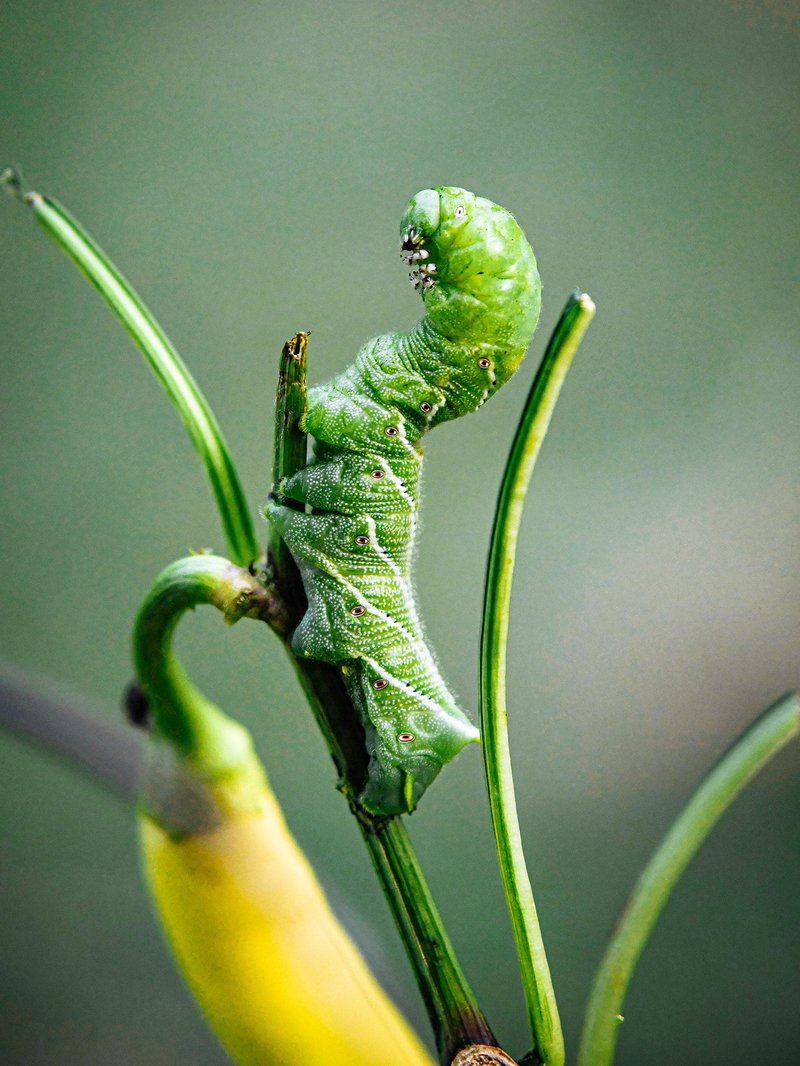
Imagine you’re trying to grow the finest tomatoes in town. You’ve nurtured them from seedlings, watered them carefully, and watched them blossom. But suddenly, you find your plants stripped bare by hungry hornworms. It’s like throwing a party and finding out the guests have eaten all the food before anyone arrives. In this article, we’ll explore the various economic impacts of hornworms in market gardens and how growers can manage these pests effectively.
What are Hornworms and Why are They a Concern?
Hornworms, specifically the *Manduca sexta* species, are the larval stage of the five-spotted hawk moth. These caterpillars are infamous for their voracious appetites, especially during the summer months. So, what makes them a concern for market gardens? For one, they can decimate crops in a matter of days if left unchecked. A few hornworms can quickly become a colony, munching their way through foliage and reducing plant productivity.
Additionally, hornworms can damage the overall health of your garden. When they feast on leaves and stems, they not only stunt growth but can also open the door to disease. Weak plants are more susceptible to infections, which can further decrease yields. As a result, the economic impact of hornworms isn’t just immediate; it can linger throughout the growing season, affecting profits and investments.
Here’s the thing—when you’re faced with pest issues, it’s not just about the plants. It impacts labor costs, time spent controlling the problem, and even potential crop failures. The costs add up quickly, making it essential for gardeners to take hornworm management seriously.
Direct Economic Losses from Crop Damage
Direct economic losses from hornworms can hit hard, especially for small-scale market gardeners. If you lose a significant portion of your crop to these pests, you’re not just losing the money you spent on seeds and water. You’re also missing out on potential income from sales.
For example, let’s say you have a hundred tomato plants, each of which could produce about 30 pounds of tomatoes over the season. If hornworms attack and destroy even half of those plants, that’s a loss of 1,500 pounds of tomatoes. Depending on your market, that could equate to hundreds, or even thousands, of dollars lost.
Moreover, the longer it takes to manage a hornworm infestation, the more it affects future plantings. If you can’t plant new crops on time, your annual revenue could take another hit. It’s a cycle that can leave your finances in a tight spot, making effective hornworm management critical.
Increased Input Costs for Pest Control
Dealing with hornworms often means investing in pest control measures. While it’s essential to protect your crops, these measures can lead to increased input costs. You may find yourself spending more on pesticides, organic treatments, or even labor for manual removal of the pests.
Many market gardeners opt for organic methods, which, while environmentally friendly, can sometimes be more labor-intensive and costly. Products like Bacillus thuringiensis (Bt), a natural bacterium that targets caterpillars, can be effective. However, they require careful application and timing, which could mean hiring additional help.
It’s also worth noting that the need for pest control may become recurrent if hornworms are a persistent issue. This can lead to budgeting for pest management as a regular part of your growing strategy, just like you would for soil amendments or seed purchases. Managing expectations and finances becomes crucial in ensuring the sustainability of the garden.
Impact on Labor and Time Management
Labor is one of the biggest costs for market gardens, and hornworms can put a strain on your workforce. Imagine spending hours searching for these camouflaged caterpillars, only to find that they’ve multiplied overnight. Managing this pest can divert labor away from other essential tasks, such as planting, harvesting, or marketing your goods.
Time spent dealing with hornworms could also mean you’re missing your window for other jobs. For instance, if you’re busy removing hornworms, you might delay planting new crops or fail to attend to market needs. This can lead to lost opportunities, affecting your overall productivity and potential revenue.
Honestly, proactive pest management isn’t just about dealing with the pests themselves; it’s about maintaining a well-oiled operation. Streamlining your time and labor is just as important as protecting your crops.
Long-Term Effects on Crop Viability and Marketability
Beyond immediate financial impacts, hornworms can affect the long-term viability of your crops. If you consistently face hornworm infestations, the quality of your produce might suffer. Customers are less likely to buy produce that looks blemished or unhealthy, which directly impacts your marketability.
In a competitive market, appearance matters. If your tomatoes are chewed and misshapen, consumers may choose the next vendor who offers pristine produce. This can lead to a loss of loyal customers and diminish your reputation.
Long-term damage to crops also means you have to consider crop rotation and diversification. If specific plants are consistently affected, you may need to rethink your growing strategy, which can require upfront investment and risk. These shifts in planning and planting can create a ripple effect in your financial planning, requiring careful thought and consideration.
Strategies for Mitigating Hornworm Damage
Now that we’ve laid out the impacts, let’s discuss how to mitigate hornworm damage effectively. There are several strategies available to market gardeners, ranging from preventive measures to active pest control.
- Regular Monitoring: This means checking your plants frequently for early signs of hornworm activity. Spotting them early can make control much easier and less costly.
- Natural Predators: Introducing birds or beneficial insects that feed on hornworms can help keep their populations in check. Consider creating habitats that attract these natural defenders.
- Crop Rotation: Changing your planting schedule can disrupt the lifecycle of hornworms, making it harder for them to establish themselves each season.
- Organic Treatments: Using organic solutions like neem oil can deter hornworms without harming beneficial insects.
Finding a balance between effective pest control and sustaining your garden’s health is crucial. Adopting a holistic approach can help minimize the economic impacts of hornworms while promoting a healthier growing environment.
The economic impact of hornworms in market gardens is undeniable. From direct losses in crop yield to increased input costs and labor challenges, these little caterpillars can wreak havoc on a gardener’s profits. However, with proper monitoring, active management strategies, and a focus on sustainable practices, you can minimize their effects and protect your investment.
By understanding the threats hornworms pose, you’re better equipped to tackle your gardening challenges. Remember, a healthy garden isn’t just about the plants flourishing; it’s also about maintaining the business that supports your passion. So, keep a watchful eye on those crops, and you’ll be on your way to thriving garden success.

